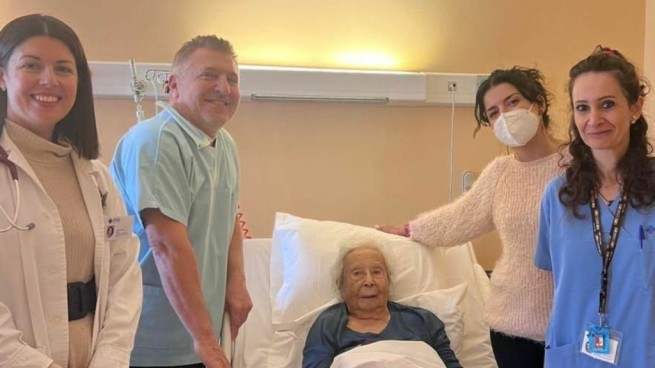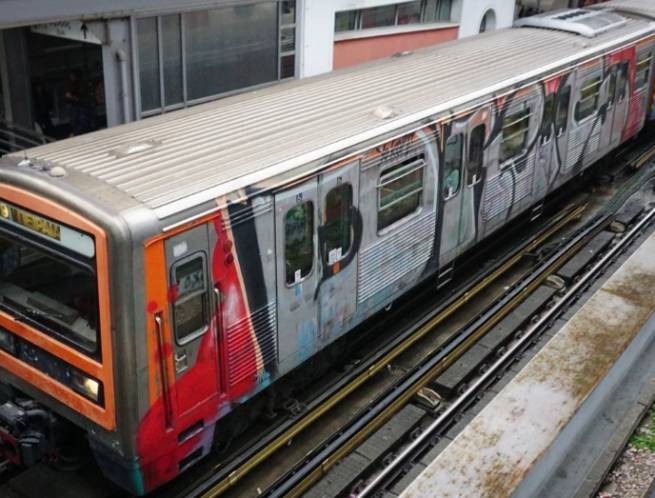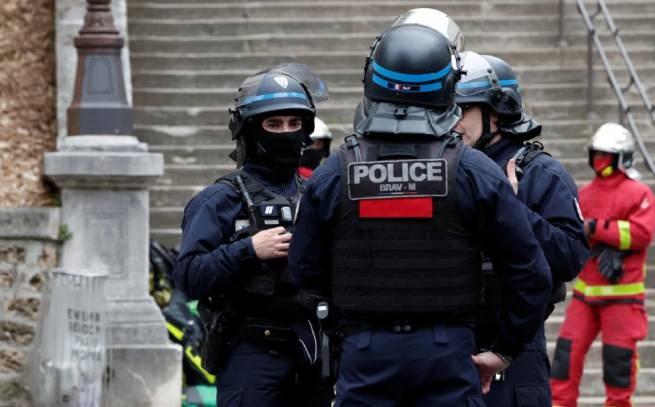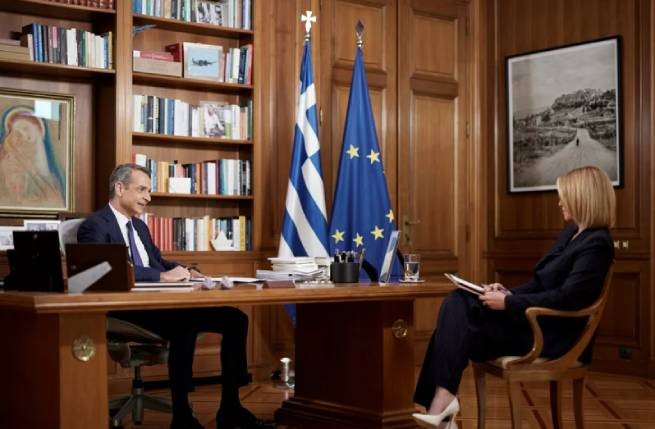The story of how the coordination of the efforts of agencies in Athens and Kyiv successfully culminated in the removal of ten refugee children.
Shortly before midnight on Good Friday, Iraklis Moskov, Greece’s special secretary for the protection of unaccompanied minors, called Sophia Kuvelaki, CEO of the Home Project, an organization that supports unaccompanied refugee children, to tell her the good news. “They just crossed the border at the crossing at Promachonas,” he told her with relief. He hung up and tried to sleep for a few more hours. However, Mr. Moskov did not succeed, because every hour the chief of police from each district, who accompanied the bus with children, called him to inform him about the passage of the children’s group.
At 5 am, he received a call again that the bus had reached its final destination, the Home Project dorm. “But we don’t see anyone here,” he answered anxiously. Eventually it turned out that the bus had been parked 100 meters away from him because the road was narrow and he couldn’t get any closer. They ran there, the driver opened the door, and the kids got out of the bus, one by one. They were overwhelmed by the long journey, and one of the four-year-old girls stumbled, fell and cried. Iraklis hugged her, and she immediately smiled. It was a very touching moment for everyone: after two months of persistent efforts, the first ten orphans from Ukraine arrived in Greece and were safe.
Ms. Kuvelaki and Mr. Moskov first began to discuss this issue from the first days after the war began. They spoke with Deputy Minister of Immigration Policy Sophia Wultepsi and told her about the information they had gleaned from war-torn Ukraine: “170,000 children were in institutions or foster care and were at risk. In Greece, there are 300 vacancies in child protection structures. We can help and accept them,” they told her. Ms Woltepsi agreed and spoke with the Prime Minister. “Of course they should come. If you need help, tell me,” he told her over the phone. Ms. Wultepsi relayed his words to Mr. Moskov and Ms. Of course, they could not have imagined how difficult the task would be.
From the very beginning, they followed the prescribed procedures based on the protocol. In close cooperation with the Ukrainian embassy here, they were in contact with the local ministries and structures. Ms Vultepsi recalls one of her first online meetings with Mr Moskov and two Ukrainian child protection ministers. While they were talking, the sounds of an air raid siren suddenly rang out. The Greek side froze. “Do you want us to stop?” they were asked. “No, we continue as usual,” they replied. They thanked the Greeks for their interest and spoke about complaints confirmed by large organizations: how children disappear in Russian-occupied areas – they are believed to be being transferred to Russia. “We know it will be safe in Greece, but we don’t want them scattered across Europe and out of control. They must be accompanied by our people,” they were told.
In the shortest possible time, a memorandum of cooperation was signed, in which the Greek side promised that the children would not be given up for adoption, and that they would return when the war was over. Since then, information has appeared three times that a group of children will arrive – each time different. But something happened at the last moment and the mission was cancelled. At the height of the war, with humanitarian corridors closed and without mechanisms to protect children, no one was ready to take the decision to take children out of the country.
As the weeks passed, Ms. Kuvelaki and Mr. Moskov realized that they needed to operate outside of strict protocol. They contacted dozens of people in Ukraine. From the Archbishop of Kyiv to Ruslana (a former Eurovision winner who took on the role of child protection ambassador), as well as their contacts on the ground, who had a clear picture of the situation and the need for specific orphanages. That’s how they learned about the orphanage from where ten children finally made their way to Greece: from a 10-month-old baby to a 17-year-old girl who either lost her parents or her parents lost their rights before the war broke out. The problem, however, was that their guardians had to stay with the other children in the institution.
When they were found, there was a phone call in Greece that everyone was waiting for. The children, they were told, must leave immediately. It was Holy Wednesday and the ministry began organizing the evacuation. The initial idea was to be airlifted – the plane was rented with the help of an international organization for migration. However, time was running out and finally a solution was given by Ms. Vultepsi’s contact person in Ukraine: expatriate Pantelis Boumbouras took over the transport of the children with the help of a bus and two drivers who drove alternately for 33 hours non-stop.
Drive
On Maundy Thursday, 16 people got on the bus (children of educators also arrived in Greece). Each of the orphans had a small suitcase with clothes and a folder with their story. Only one toddler had a few toys with him so he could play on the long drive. They knew little about the country that would receive them. The employees of the orphanage greeted each other, and the bus started moving. Both countries watched him anxiously for hours until he pulled away from the bombed areas.
In the meantime, the Home Project team had to reorganize a hostel in which they could stay within two days. Find staff, mostly translators, since neither the children nor the teachers spoke English, and also make internal transfers to the hostels so that all 16 people from Ukraine could be accommodated together. Ms. Kuvelaki herself spoke to nine boys who live in one of the dormitories funded by the Dutch government in cooperation with the NGO Movement on the Ground and explained to them that they should separate and move to another dormitory.
He was very touched by her support. When they left, they left gifts and cards for the children. Since then, they often visit them, play with the younger ones and share their stories with the older ones. And they survived the war and exile, and traveled the same dangerous path – of course, they are completely alone. Their coexistence in such a safe and supportive environment heals everyone.
Adaptation
Children from Ukraine have been in Greece for a month now. Although the school year is almost over, Ms Kuvelaki spoke to the Moraitis Kindergarten and the two twin boys started going to school there. Their teacher Clio taught the school’s students Ukrainian words to greet children from Ukraine – they have adapted so well that they are already discussing whether they should be accompanied to school. Three younger children go to kindergarten “Angeloludiya”. By chance there was already a child from Ukraine, and his mother volunteered to help with the translation. The elders attend classes at the Ukrainian school in the Ark of Peace, but also through distance learning, which is still operating in their country, so as not to miss the school year.
All ten children participate in all activities of the “Home Project” together with other children of the dormitories: on weekends, the older girl attends classes at ACS, the younger ones play at the Moraitis school. Day after day, hostel residents see them open up and make new friends.
Domashniy Proekt employees often communicate with the ministry in Kyiv. And while the initial focus was on these ten children and planning for their return to their country in September, last week for the first time the possibility of other children coming to Greece was discussed.
At the teleconference held at the ministerial level, the message was clear: if children are not transferred immediately from institutions, they risk getting lost…






More Stories
Poland is ready to assist Ukraine in the return of draft dodgers
First negotiations between Ukraine and the Russian Federation on displaced children (video)
"Inflated hopes and delay in the onset" – what to expect on the battlefield in Ukraine